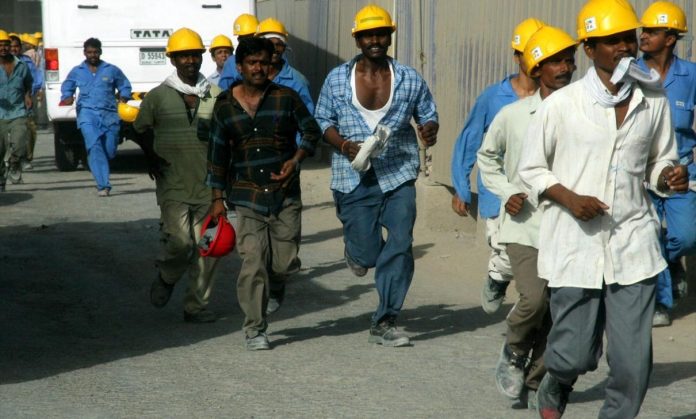The results of last month’s European Parliamentary election have shaped a new environment inside the bloc’s directly-elected institution. And it’s one that may impact relations between Brussels and the Middle East, particularly the United Arab Emirates.
For instance, the Lisbon Treaty (Article 21) explicitly states the EU will act on the global scene following strictly its founding principles, which include democracy, the rule of law, defence of human rights and respect of fundamental freedoms and human dignity.
What’s more, the EU claims a leading role in combating money laundering, trafficking, terrorism and the preservation of peace in the world.
Taking into consideration all the above, it is questionable whether the EU will actually take this position as regards its relations with the United Arab Emirates. This is because the UAE, according to critics, violates all the principles.
What are the main reasons that force the EU to be inconsistent with its own principles? Why is the EU soft on UAE but takes a strong stance against other countries?
A report published by the Democracy Centre for Transparency in July 2018 addressed the issue around whether the UAE should be eligible for EU Visa Waiver. According to the report, human rights are blatantly violated in the UAE.
Women’s rights are practically non-existent, while freedom of expression is severely banned.
The migrant workers who represents 80% of the UAE’s 9.4 million inhabitants, have no rights, are mistreated and their existence does not defer of a slave.
Trafficking is also flourishing and countless European women are trapped in the sex slave industry.
the UAE are deeply involved in interventions in other countries including Yemen and Libya. Due to these interventions, thousands of civilians were killed in Yemen, where the UAE’s forces committed human rights violations while Libya was led into a deadlock
In March 2019, the UAE made it on the EU’s blacklist of tax havens. The country refuses to display details to the EU concerning tax avoidance schemes. It also seems there is no effective control in foreign investments in the country.
Additionally, the UAE are deeply involved in interventions in other countries including Yemen and Libya. Due to these interventions, thousands of civilians were killed in Yemen, where the UAE’s forces committed human rights violations while Libya was led into a deadlock.
And the question remains. Why doesn’t the EU react according to its diplomatic principles in the UAE?
The answer is related to the economic and financial interests in many of the EU member states and those interests are reflected in the political forces inside the European Parliament.
On 4 October 2018, the European Parliament adopted a resolution about human rights activist Ahmed Mansoor. The resolution also touched the human rights abuses against any form of free expression.
The EP demanded an “EU-wide ban on the export, sale, update and maintenance of any form of security equipment to the UAE which can be or is used for internal repression, including internet surveillance technology.”
In addition, MEPs called for an EU arms embargo against the UAE for its intervention in Yemen.
During the debate in the European Parliament, the MEPs were split. A part of the political forces expressed reluctance to adopt the resolution while others openly opposed it.
On one side, many MEPs affiliated with the European People’s Party (EPP) refused to adopt the initial text. They considered it too negative for the UAE and presented another – a soften one.
The European Conservatives and Reformists (ECR), led by both the UK Conservatives and the Polish PiS, ignored the reports related to UAE’s reality and praised its commitment in fighting “extremism”. The ECR’s resolution underlined the role of the Emirates as an ally of the West in the Gulf.
The far-right camp led by Marine Le Pen and Matteo Salvini rejected any resolution.
Fortunately, the European Parliament adopted the resolution with 322 votes to 220 against and 56 abstentions.
The new balance of forces is now favourable to push governments and by extension the EU to reconsider its flabby position on the UAE and stay coherent with its principles
However, European governments appear to lack the political will to back this resolution.
In March 2019, the EU added the UAE to its tax heaven blacklist after a tough debate between the EU finance ministers. The tougher objections to such a decision came from Italy – which was governed by a coalition between the far-right Ligue and the populist M5S, and from Estonia whose populist Prime Minister Jüri Ratas formed a coalition government with the far-right EKRE party in April.
Last month’s European Parliamentary Elections put an end to the dreams of the far-right and the conservatives to drastically change the EU.
The ECR, fallen from the third strongest position in the European Parliament, dropped to sixth (from 73 MEPs to 63), trailing behind the far-right which scored positively only in Italy. The EPP has 182 seats, but some of its members keep a tough position on UAE. As for the Italian M5S, the party supported the European Parliament’s October 2018 resolution.
On the other side, the Liberals of the Renew Europe Group and the Greens emerged with considerable gains while the Social Democrats remain the second strongest Group in the European Parliament. The Left had always backed resolutions against human rights abuses and money laundering topics.
The new balance of forces is now favourable to push governments and by extension the EU to reconsider its flabby position on the UAE and stay coherent with its principles.

